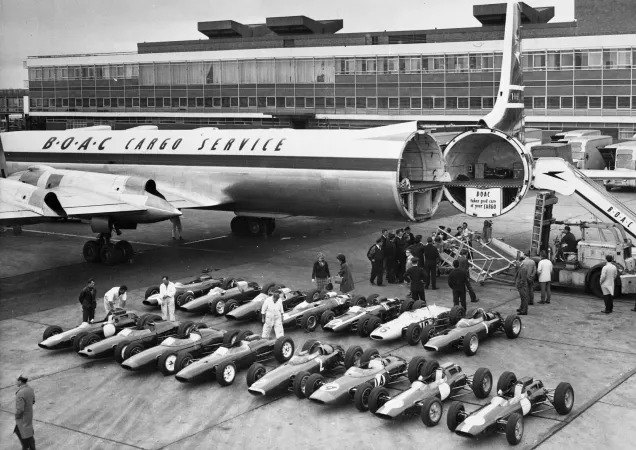The Canadair CL-44 was a unique aircraft that served as a commercial airliner, cargo plane, and military transport during the 1960s. While not as famous as some other airplanes, it had a number of interesting features and developments during its short time in service.
From Military Needs to a New Design
The Royal Canadian Air Force (RCAF) needed a new airplane in the early 1950s. Canadair, a Canadian aircraft company, already had experience building planes for the RCAF. They decided to take an existing British design, the Bristol Britannia, and modify it to meet the needs of the Canadian military. This new plane became the CL-44 and entered service with the RCAF in 1960 as the CC-106 Yukon.

Cargo Airlines Loved It, Airlines Not So Much
Canadair hoped the CL-44 would also be popular with airlines that carried passengers. However, airlines were more interested in newer jet airplanes at the time. But cargo airlines loved the CL-44! It was cheaper to operate than jets because it burned less fuel. Canadair even added a special feature to make loading and unloading cargo faster: a swinging tail section! In the end, only 23 CL-44s were sold as cargo planes.
A Stretch for Passengers
Even though airlines weren’t interested in the CL-44 at first, Canadair built a few extra planes without any buyers. They eventually sold four of these to Loftleiðir Icelandic, an airline in Iceland. Loftleiðir Icelandic wanted more passenger space though, so Canadair modified these planes to be longer and carry more people. For a short time, these CL-44s were the biggest commercial airplanes flying over the Atlantic Ocean!

An Unfortunate End and a Unique Second Life
Sadly, the CL-44’s story doesn’t have a happy ending. There were a few accidents involving CL-44s, and by the 1980s, airlines were no longer using them. Only two CL-44s remain today. One is on display at an airport in England, and the other was converted into a nightclub in South America!

